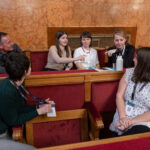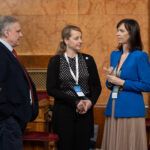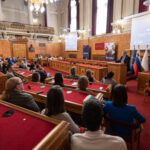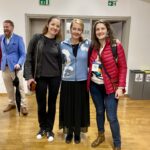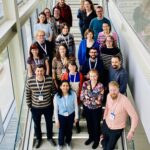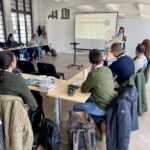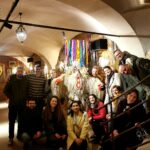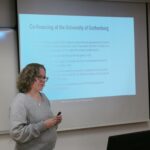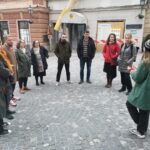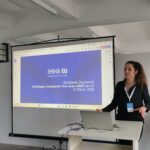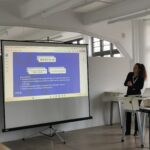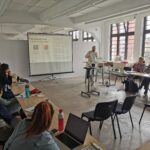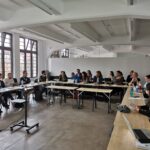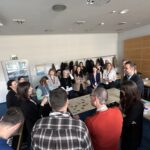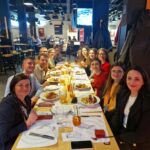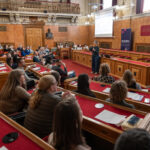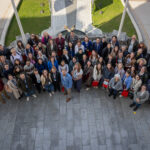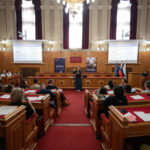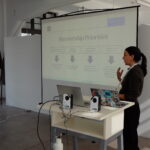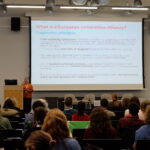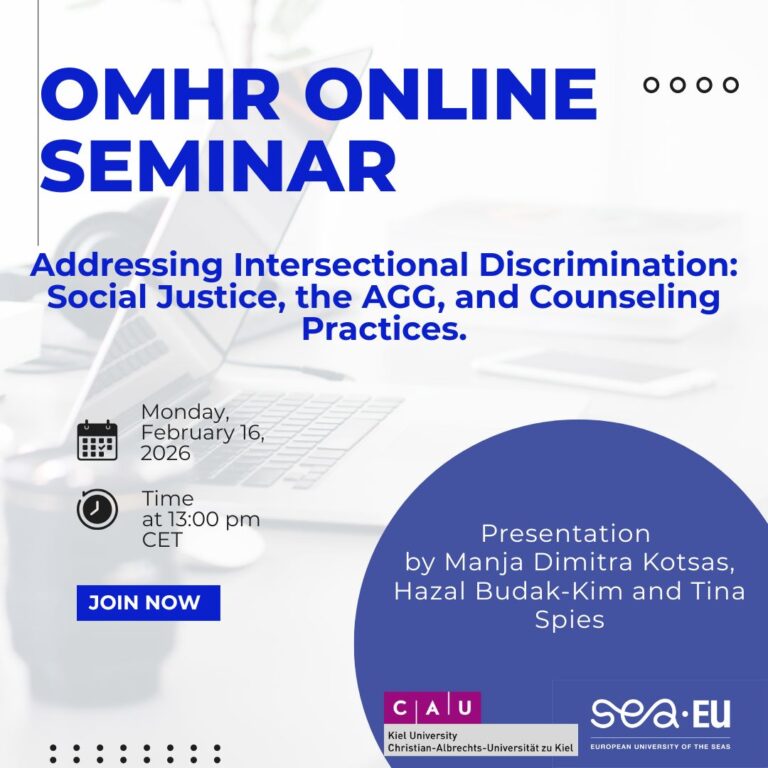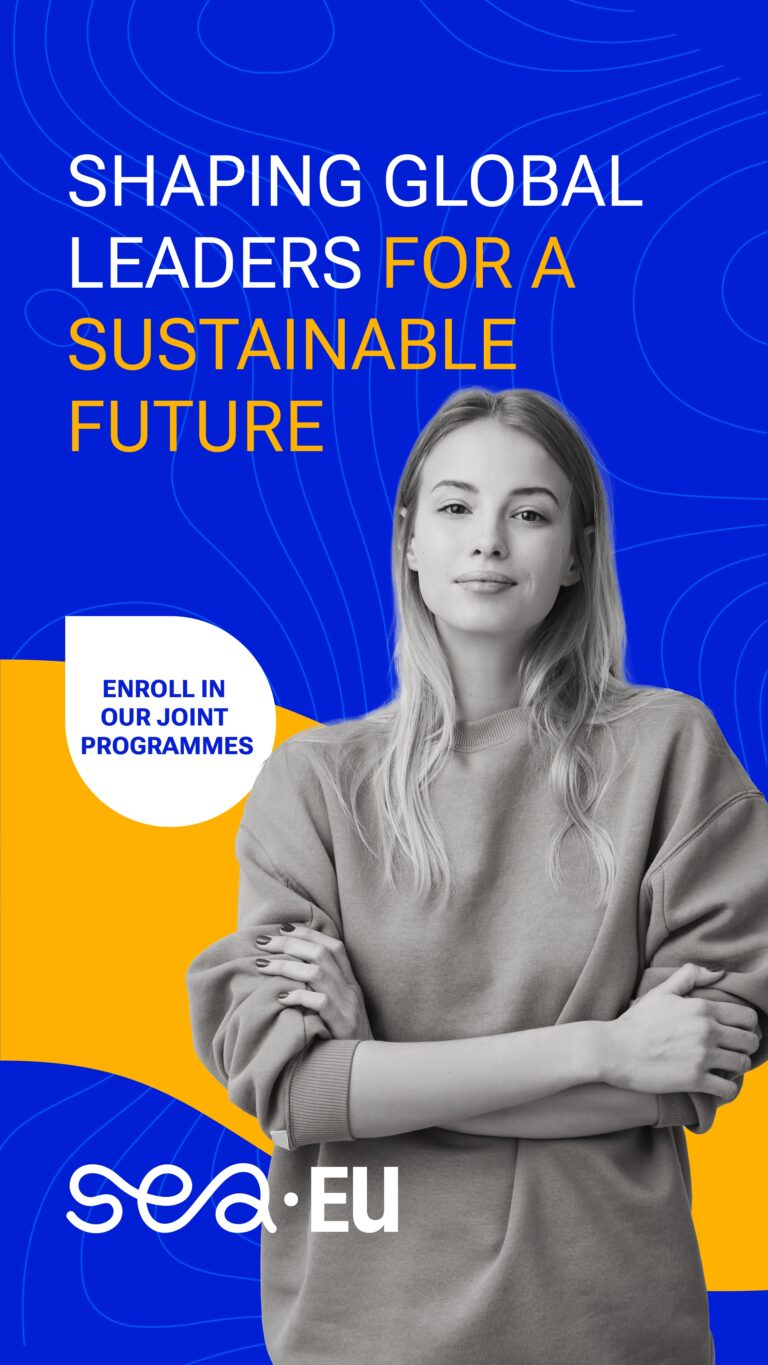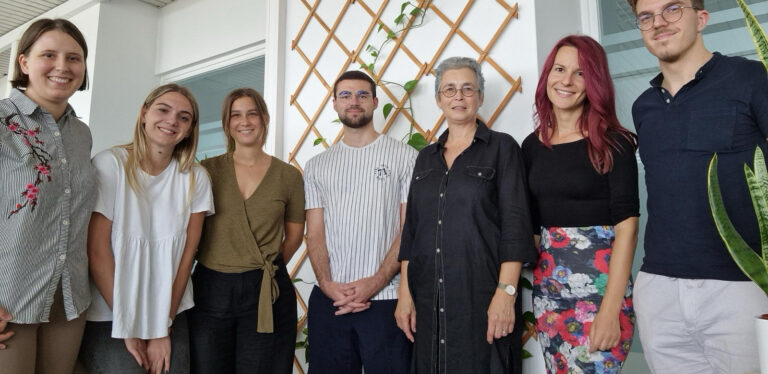From March 24 to 28, 2025, the University of Ljubljana welcomed international colleagues for a week-long Erasmus+ Blended Intensive Programme (BIP), focusing on the theme:
“Sustainability of European University Alliances through Erasmus+ Projects.”
The programme brought together higher education professionals from across Europe to share insights, exchange best practices, and explore the evolving role of Erasmus+ in advancing university collaboration, digitalisation, and global partnerships.
Participants were greeted at the historic Rectorate with a musical performance and welcome words by Prof. Dr. Boštjan Markoli, Vice-Rector for Internationalisation and Quality. The day continued with a Slovene crash course, guided tours, and a reception that set the stage for a collaborative and inspiring week.
Programme Highlights
🔹 Tuesday – Navigating Change
At the Faculty of Social Sciences, discussions centered on the future of Erasmus+ beyond 2027, intercultural communication, and strategies for engaging Generation Z. Participants took part in parallel workshops and closed the day with a student film screening hosted by UL’s Academy of Theatre, Radio, Film and Television.
🔹 Wednesday – Sustainability through Collaboration
Held at Center Rog, the day featured case studies and presentations from across Europe – including insights from Vrije Universiteit Brussel, University of Helsinki, and the International University of Rabat. The afternoon’s World Café sparked new ideas for linking Erasmus+ with long-term university alliance strategies.
🔹 Thursday – Digitalisation in Higher Education
The digital dimension took center stage with sessions on AI in teaching and EU grant writing. Speakers from UL, the University of Split, and Ca’ Foscari University of Venice shared digital tools and outreach strategies. The day ended with a feminist walking tour and a farewell dinner featuring traditional Slovenian cuisine.
🔹 Friday – Financial Management in Erasmus+
The final day focused on Erasmus+ financial frameworks, including the new lump sum model. Best practices were shared by colleagues from Malmö University, University of Gothenburg, and TU Dresden, concluding with one-on-one meetings to explore future project collaborations.
With over five days of knowledge-sharing, cultural exchange, and community-building, the BIP programme reinforced the value of sustainable partnerships and innovative practices in higher education. Participants returned home with new insights and strengthened networks to support the ongoing evolution of the Erasmus+ programme.
This training brought together 80 professionals from 46 universities across 27 countries in Europe, Africa, and Asia, with half representing member institutions of the EUTOPIA Alliance fostering a truly global and diverse learning environment.

